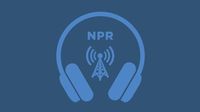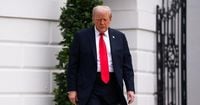President Trump found himself at the center of a rapidly escalating international crisis this week as two of the world’s most volatile conflicts—Israel’s war with Hamas and Russia’s ongoing aggression in Ukraine—spilled dramatically into the territories of key U.S. allies. The events have raised pointed questions about Trump’s doctrine of “peace through strength,” challenging his claims of unique influence over world leaders and putting his foreign policy strategy under the microscope.
On September 9, 2025, Israeli Prime Minister Benjamin Netanyahu ordered strikes in Qatar, a critical U.S. ally and a key mediator in the fraught Middle East peace process. According to NPR, President Trump was not informed of the operation in advance. He learned of the attack first from the U.S. military, only later receiving word from Netanyahu himself. Trump, visibly frustrated, told reporters he was “very unhappy” with Israel’s actions. He went further, stating that the strikes did not advance either Israeli or U.S. goals—a rare public rebuke of a close ally.
The fallout was immediate. Qatar, long a linchpin in America’s strategy for regional diplomacy, demanded retaliatory measures against Israel. The surprise attack also threatened to unravel U.S.-backed efforts to broker a ceasefire and secure the release of hostages held by Hamas. Dan Shapiro, a former deputy assistant secretary of Defense for the Middle East, told BBC, “Obviously this is a point of tension between the U.S. and Israel and Israel feels it’s going to act on its own, against U.S. wishes, or counter to U.S. ongoing diplomatic efforts without notification.” He added, “The question is if this actually increases the possibility of getting the negotiations back on track… or, what I fear, it endangers the lives of the remaining hostages who are alive, and makes it harder to get to an endpoint where they can come home and the war can come to an end.”
While the White House was still reeling from the shockwaves in the Middle East, another crisis erupted on Europe’s doorstep. In the early hours of September 10, Russia launched a military incursion into Poland using at least 19 drones—the largest such incursion since the Ukraine war began. Polish officials immediately summoned NATO members for urgent discussions, calling the attack an intentional act of war. According to Ukrainian President Volodymyr Zelensky, Ukrainian air defense forces destroyed more than 380 drones of various types and assisted Poland and NATO in responding to the Russian assault.
The Russian attack on Poland came just days after one of the most devastating barrages on Ukraine itself. On September 7, Russia deployed over 800 drones and 13 missiles, resulting in civilian casualties, including the tragic deaths of a mother and her 3-month-old baby in Kyiv. Seventeen others were injured in the onslaught, highlighting the relentless toll of Russia’s campaign.
Trump, who had only recently hosted Vladimir Putin for talks in Washington, was caught off guard by the Russian escalation. He questioned Russia’s “violation” in a post on Truth Social, writing, “Here we go!” But critics, including members of both parties, were quick to seize on what they saw as a lack of effective leadership. Senate Minority Leader Chuck Schumer (D-N.Y.) didn’t mince words: “Bad news for you Donald Trump, the Nobel Peace Prize is slipping away from your grasp. Crises over the last 24 hours have escalated to dangerous levels and President Trump, you seem to be leading from behind.”
Heather Conley, a former State Department official specializing in European affairs, told NPR that the events of the week undercut Trump’s oft-repeated assertion that wars would not happen under his watch. “Vladimir Putin has taken perhaps the most bold military decision to potentially harm NATO ally Poland. We’ve seen where now Israel is expanding its military operations across the Middle East. This is happening on Mr. Trump’s watch,” she said. Conley warned that unless Trump took decisive action, both Putin and Netanyahu might interpret the administration’s response as a green light to push boundaries further.
Within Congress, frustration was mounting. Senators Jeanne Shaheen (D-N.H.) and Thom Tillis (R-N.C.), co-chairs of the Senate NATO Observer Group, criticized Trump for halting $225 million in military funding for the Baltic states earlier in 2025. “The message this sends is dangerous: that the United States is pulling back just as the stakes in Ukraine and for NATO’s security are at their highest. Our adversaries are taking note that they can wait out American support—that does not make America safer,” the senators wrote. “America must not hand Putin an advantage; the cost of inaction to America’s security is too high.”
Republican lawmakers presented a more divided front. House Foreign Affairs Committee Chair Brian Mast (R-Fla.) argued that Putin was testing NATO’s resolve, betting that the alliance’s response would be limited to “talk among NATO members.” Mast cautioned, “The U.S. and our allies should not fall for it.” Senator Lindsey Graham (R-S.C.) insisted that Congress was ready to pass punishing sanctions on Moscow as soon as Trump gave the go-ahead.
Others in the GOP, like Senator Joni Ernst (R-Iowa), maintained that Trump still wielded influence over both Putin and Netanyahu. “We’ve only been brought to this point because President Trump is pushing them,” she said, adding, “I’d love to see peace, especially in Ukraine, what’s going on, but we’ve got to get President Putin in a position where he’s being crushed. Which is why we’re pushing to move on that sanctions bill.”
There was growing pressure from Republicans for Europe to step up its own sanctions regime. Senator James Lankford (R-Okla.) told The Hill, “If we’re going to put sanctions, Europe needs to do the same thing. Europe needs to stop buying Russian oil, Europe needs to be able to impose the same sanctions to be able to align with us as well.” European Commission chief Ursula von der Leyen announced on September 10 that the EU was considering a faster phaseout of Russian fossil fuels, but the bloc remained divided, with Hungary, France, Slovakia, Belgium, and Spain still importing Russian oil.
Meanwhile, experts like Kori Schake of the American Enterprise Institute observed that Trump’s approach to Russia risked overestimating his own influence while underestimating Moscow’s resolve. “The Russians are losing a thousand soldiers a day. What President Trump doesn’t seem to understand is that Russia’s willing to kill a thousand Russians a day to achieve their objectives in Ukraine. They’re not going to make any compromises until their cupboard starts running dry of money, weapons or people,” Schake told NPR.
With the world watching, Trump’s next moves are under intense scrutiny. Will he double down on diplomacy, as some analysts urge, or pivot to more aggressive tactics? As the crises in Ukraine and the Middle East deepen, the stakes for U.S. leadership—and for Trump’s legacy—have rarely been higher.
For now, the president faces a stark reality: in a world riven by conflict and shifting alliances, even the most confident claims of control can be upended in a matter of days.



